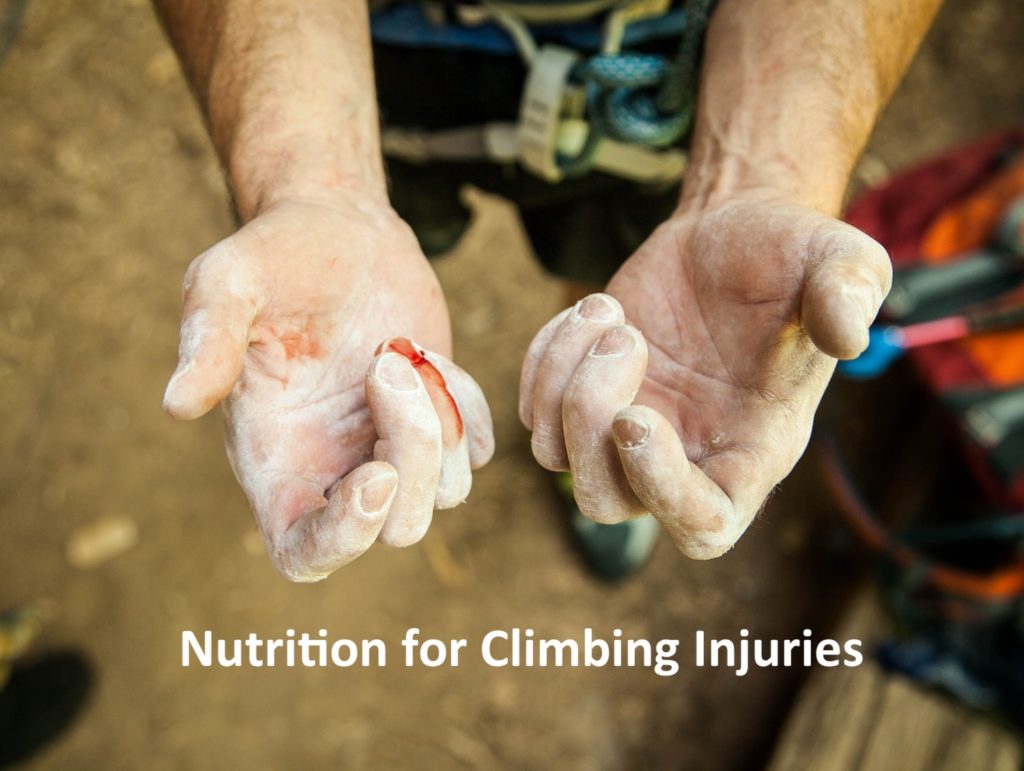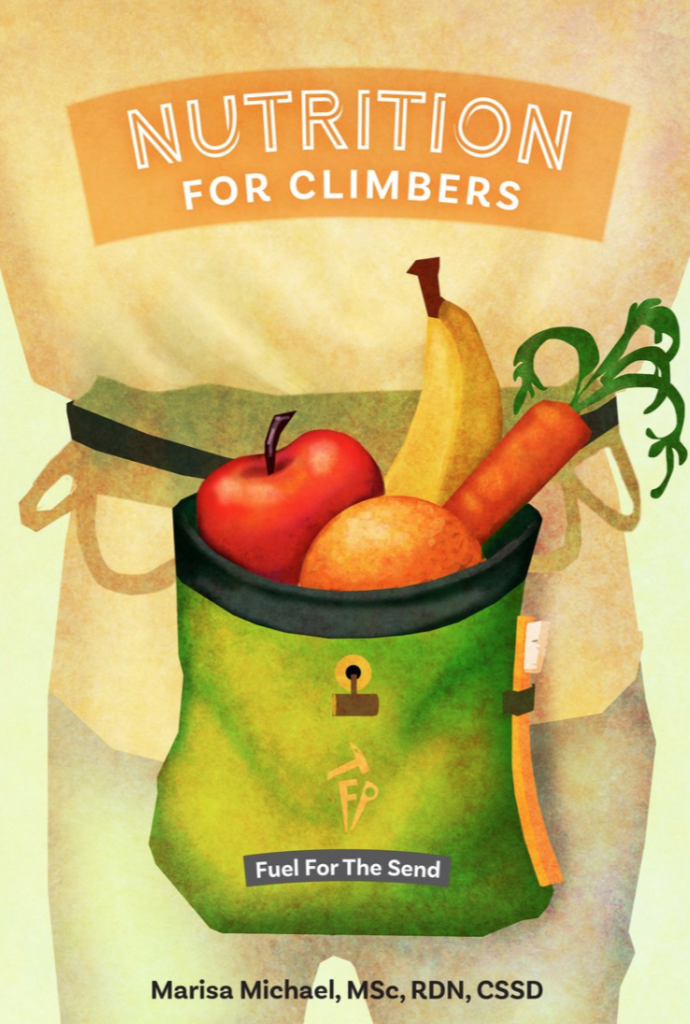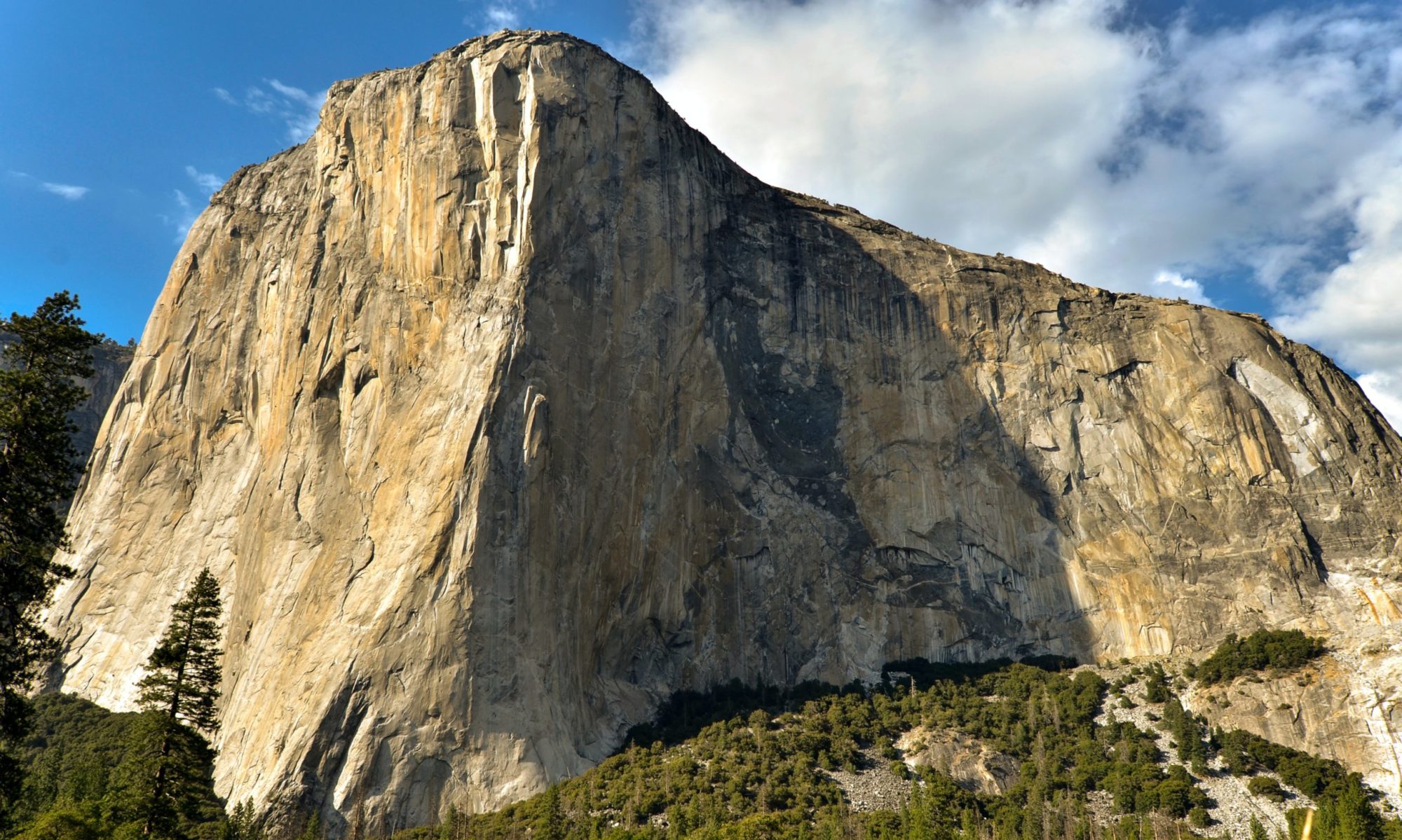
There are lots of ways to avoid injury–proper training, warm up, and strength routines. But food is also your friend when it comes to avoiding injury. There are specific nutrients that athletes of all sports should get plenty of to support soft tissue, muscle and bone strength. In an article looking at five climbing related deaths in Yosemite National Park, two out of the five deaths may have been prevented through adequate fueling and hydration.
This is an extreme example of the critical role nutrition plays in injury prevention. Ensuring adequate fueling and hydration is an important part of being a climber.
As a climber, or any athlete really, eating a variety of nutrients daily may lower your risk of developing an injury:
Vitamin D and Calcium: Vitamin D is required for calcium absorption. Calcium is critical for bone health. Vitamin D is hard to get from food (mainly found in fatty fish, mushrooms, eggs, and fortified dairy products), and as a result most American’s are deficient. Most dairy products and milk alternatives have been supplemented with Vitamin D and are a great way to meet daily Vitamin D and calcium recommendations.
Vitamin C: Vitamin C is required for collagen formation. Collagen is the building block for tendons and ligaments. Citrus of many varieties is chocked full of Vitamin C. Don’t like grapefruit, oranges, lemons or limes? That’s weird, but okay. Many fruits and vegetables are rich in Vitamin C, like strawberries and tomatoes.
Zinc: Zinc is an important mineral in healing. Zinc is better obtained from food. Zinc is found in most animal foods but also in whole grains and legumes.
Protein: Protein is required to build and repair muscle during damage. Protein is also important for bone repair. Even vegans can meet protein recommendations by turning to some of the soy-based products offered up at the grocery store. Soy is unique in that it has all essential amino acids (just like animal-based proteins). Check out this post for more information on whey, BCAAs, plant-based protein powders, and collagen.
Anti-inflammatories: Injury causes inflammation. This is actually a useful body response to promote healing. This acute inflammation brings important components to the injury site to begin recovery. Chronic inflammation is different and may be harmful for long-term health. Fatty fish, nuts, whole grains, legumes, fruits, and vegetables are all great food sources for fighting inflammation long-term.
Water: Proper hydration is critical. If you are climbing for more than about two hours (or have a long approach), you can measure your sweat rate to see how much fluid you need to drink during the climbing session in order to stay hydrated. Dehydration can lead to decreased mental sharpness, sluggish response times, and decreased strength and performance. None of those are good when you’re mid-climb! Similarly, a drop in blood sugar may cause confusion, irritability, shakiness, and more. Make sure you fuel your body with calories throughout the day to maintain blood sugar levels.
Here’s how to measure sweat rate: Weigh yourself without any clothing before a training session. After an hour of activity, weigh yourself again without clothing. The difference in weight before and after exercise will give you a ballpark estimate of your rate of sweat loss per hour of activity. You want to drink 16 ounces of water or an electrolyte beverage for every pound lost to make up for losses from sweat.
Not eating enough to support training can lead to overtraining and can make the body more susceptible to injury. If you are a recreational athlete, clocking no more than 60 minutes a day of exercise, no need to overthink it. But, when training for triathlons, multi-pitch climbs or rigorous backcountry excursions you want to take the following to ensure rapid recovery and reduce the chances of incurring an injury.
- Hydrate often enough to maintain sweat losses.
- Eat within an hour or two after training or exercise to promote muscle recovery.
- Eat 1.2 grams per kilogram of carbohydrate to replenish glycogen stores.
- Eat 20 grams of protein to help build muscle.
In addition to eating adequately and balanced, some climbers opt to supplement to further reduce the risk of injury. In general, it is best to get vitamins and minerals through food, but the following supplements have shown to be beneficial in injury prevention:
- 20 grams collagen daily for soft tissue maintenance (consume it prior to climbing or training). The lack of blood flow in this tissue type requires that collagen (with about 50 milligrams of vitamin C) be consumed prior to exercise in order to get delivered to the tendons and ligaments.
- 2-6 grams fish oil daily as an anti-inflammatory (check with your doctor first)
- 12 oz tart cherry juice at night to help with muscle soreness (cherries are rich in melatonin, so wait until the evening or you might find yourself mid-pitch a bit sleepy)
When it comes to injury prevention there are some nutritional and lifestyle factors to consider. Aim to get 100% of your daily value of Vitamin C, Zinc, Calcium and Vitamin D. You can supplement with collagen, fish oil and tart cherry juice as all have shown to aid in strengthening or healing. Higher intensity interval training is effective at increasing the crosslinking of collagen fibers in tendons and ligaments. If it isn’t already part of your cross training routine, you might consider a couple interval style workouts each week to promote soft tissue strength. Although these methods don’t guarantee you to stay injury-free, they will help keep your body stronger and aid in the healing process if you find yourself with a gnarly injury.
For tips and tricks to maximize nutrition for injury recovery and foods for muscle strength and recovery are found in our other blog posts!
This article was written by Kaila Dickey

Want to learn more? Check out our on-demand masterclass Nutrition for Climbers, or our book Nutrition for Climbers: Fuel for the Send.
~This is general information only and not medical advice. Always check with your healthcare provider before undergoing any diet, lifestyle, or supplement changes.
